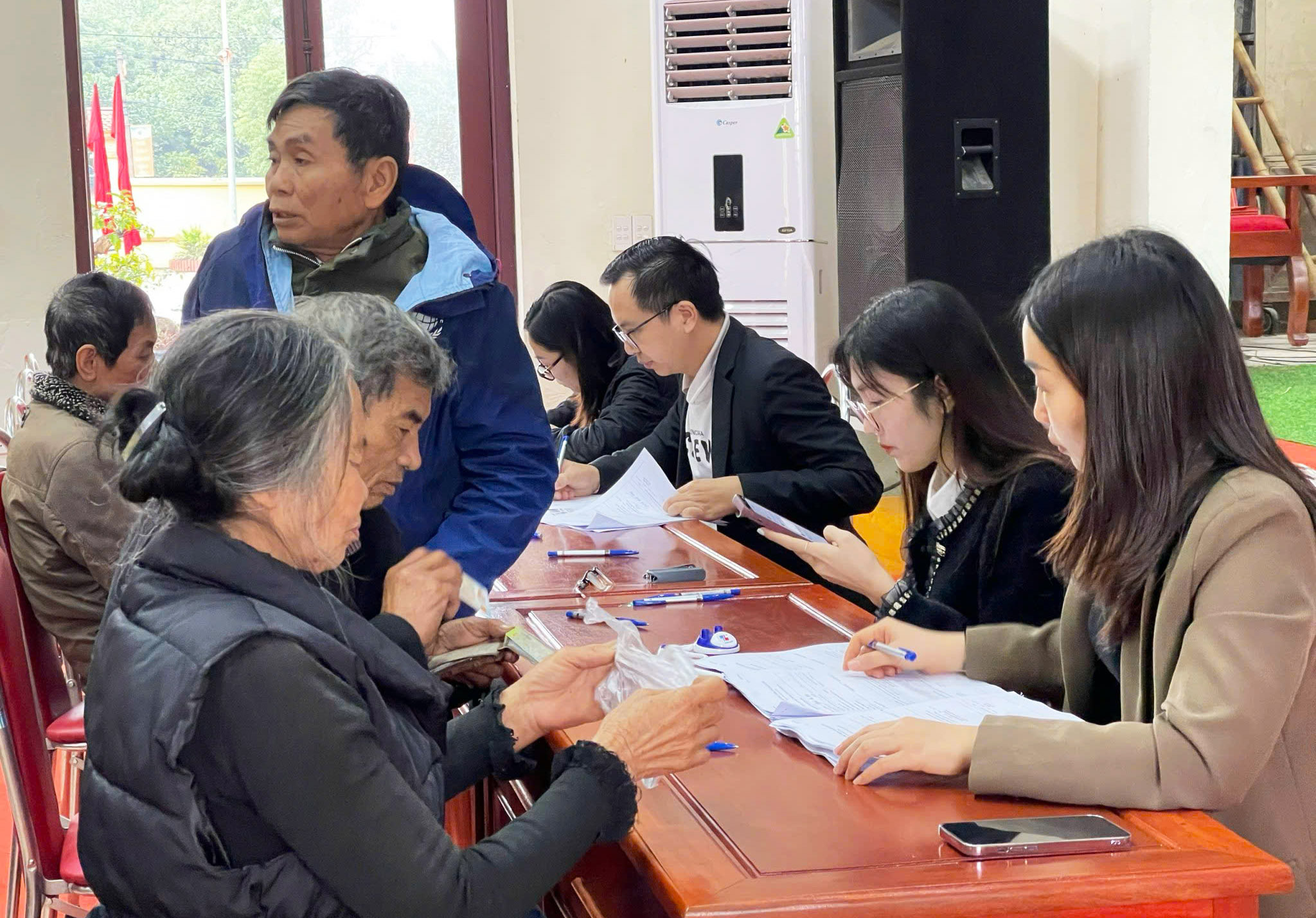Gia Binh district actively transforms digitally in implementing social security policies
(BNP) - Recently, Gia Binh district has actively implemented many digital transformation solutions in implementing social security policies. This activity not only contributes to simplifying administrative procedures, but also ensures timely, fast and cost-effective payments to beneficiaries, thus bringing many benefits to the people.

Officials and civil servants support meritorious people and social security beneficiaries to open bank accounts.
Realizing the importance of digital transformation in social security, Gia Binh district has directed its Division of Labor, Invalids and Social Affairs to review, update, adjust and supplement information on policy beneficiaries and social protection beneficiaries at the grassroots level into the management software, to ensure that 100% of the necessary data for the management of information on beneficiaries is digitized, exploited and used effectively.
At the same time, the division guided and directed communes and towns in the district to step up propaganda work so that beneficiaries of social security policies, authorized persons and guardians of social security policies can make payments through bank accounts. Up to now, the district has deployed and implemented non-cash social security payments for over 10,600 people, reaching a rate of 89.3%. Payments through accounts help save costs and reduce travel time for beneficiaries. In addition, support is provided to the right subjects, promptly, conveniently so that they can access better, fairer and more transparent financial services.
Thanks to the timely and effective implementation of solutions, by October 2024, the district standardized, cleaned and updated information on the system software and data of more than 10,000 social protection beneficiaries and over 1,800 meritorious people. Meritorious people’s records have also been digitized for the needs of information lookup and resolving preferential regimes and policies for meritorious people more conveniently and easily than extracting paper records.
Furthermore, the district also directed and guided relevant agencies, units, and People’s Committees of communes and towns to investigate, collect, update, edit, and synthesize information on more than 64,000 workers.






